- OT
- Professional support
- Optical organisations
- World Optometry Week 2024: “The need for eye care is universal, access is not”
World Optometry Week 2024: “The need for eye care is universal, access is not”
OT heard from representatives across optics on the theme for this year’s World Optometry Week: Advancing optometry’s commitment to global eye care

21 March 2024
Celebrating the work of the optometry profession and highlighting the role that optometrists play in increasing access to eye care has been a key focus of World Optometry Week (17–23 March).
Organised by the World Council of Optometry (WCO), the week has been themed: Advancing optometry’s commitment to global eye care.
The campaign, which culminates in World Optometry Day on 23 March, brings attention to the topics of equitable access to eye care and the promotion of integrated people-centred eye care.
In recognition of the campaign, OT heard from the World Council of Optometry and asked representatives across optics to share their perspectives on the theme.
"The door is open for optometry”
Dr Sandra Block, president of WCO, explained that, since the World Health Organization’s World Report on Vision highlighted the prevalence of preventable visual impairment globally, optometry has been a voice at the table.
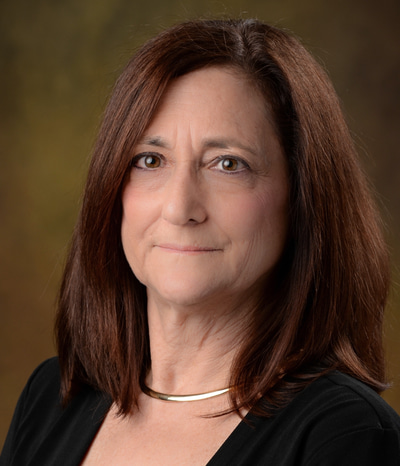
Discussing the development of the resource, Block told OT: “We want to let people know what optometry is capable of and ensure that we are considered at that primary eye care level.”
Block noted concerning projections of shortages in the ophthalmology workforce in the US, with a paper published in 2023 forecasting a “supply and demand mismatch” described as “sizeable” by 2035.
In the UK, the Royal College of Ophthalmologists’ 2022 workforce census highlighted that 76% of NHS ophthalmology departments report insufficient consultant capacity to meet current demand.
"The door is open for optometry,” Block said, emphasising that there is a place for optometry to help and ensure a continuum “all the way from health promotion, up through tertiary care.”
Block shared: “It’s our job to remind ourselves that we play a role in addressing the problem and let other people know that optometry, while we’re a relatively new profession, is very capable to help address the problems, especially in places where access is limited.”
In 2021, the World Health Assembly adopted two new eye health targets for 2030 addressing two leading causes of blindness and vision impairment, committing to a 40% increase in effective coverage of refractive error by 2030 and a 30% increase in effective coverage of cataract surgery by 2030.
“The reality is that we need to think about options that will deliver care to reduce the effective coverage targets that WHO has set up for 2030,” Block said. She added: “Who better to address that refractive error issue than optometry?”
Optometry will also influence the targets for cataracts, Block continued: “because it shouldn’t ever be simply a refractive error assessment without understanding that individual is at risk of glaucoma, or diabetic retinopathy, or showing signs of cataract that then gets referred. Optometry is part of the answer to both of those challenges.”
Looking at the role of the profession around the world, Block noted that in countries such as Australia, the UK, and North America: “Optometry has expanded the scope of practice a bit, so that we can address a lot of things that don’t need to go to that secondary or tertiary level of care.”
This improves access for patients, supports cost-saving, and allows ophthalmologists to work at their secondary and tertiary levels.
“Having people do what they do best is really important. That means ensuring optometry has the educational base, and then working to expand access and regulation to serve the public,” Block said.
Considering challenges in improving equitable access to eye care, Block identified a combination of two overarching factors.
“I believe that it is a balance between the development of human resources, and the acceptance of optometry as part of those human resources to provide primary eye care,” she said, adding that within this are issues of legislation, regulation, and collaboration.
Block acknowledged resourcing challenges in both optometry and ophthalmology, sharing: “We need to increase the number of qualified optometrists on the ground but that doesn’t happen overnight."
We are working for the quality of life of the patient sitting in that chair
In discussion with OT around the theme for World Optometry Week, Block emphasised the position of optometry as part of a community of healthcare providers.
“The universal health care model is an opportunity for everybody to work together to ensure that the centre of why we all do what we do – the patient – receives the care that is most appropriate for them,” she said.
Central to this is “knowing that we don’t work in isolation,” Block said, continuing: “An optometrist is part of the delivery of health to this patient, but we’re part of a team approach in ensuring the patient is well cared for, has the knowledge they need to make the right decisions, access to the right resources, and that they know where to go if they have a challenge."
Block gave the example of a patient with diabetes: “We all know that diabetes touches so many different systems. We shouldn’t be working in isolation. We should remind the patient: get your dental visit, get your feet checked, get your sugar levels checked, see your physician, and make sure you have a dilated eye exam. We are part of that team.”
“We are working for the quality of life of the patient sitting in that chair,” she concluded.
Paul Alexander, AOP policy and governance manager, on advocating for a national plan for eye care in England
This year’s theme for World Optometry Day, Advancing optometry’s commitment to global eye care, shines a spotlight on creating equitable access to eye care to improve outcomes for patients.
In the past year, we have welcomed developments supporting equitable provision. For example, the long-awaited confirmation from NHS England that patients without a fixed address now don’t have to provide one when accessing an NHS sight test, which is a significant help to those that are homeless and rough sleeping.
Another promising step is the Special Schools Eye Care Service. Offering children with learning disabilities a full vision and eye health assessment within their normal learning environment is hugely beneficial for accessing crucial eye care, helping to avoid unfamiliar and daunting clinical settings.
Yet, much work is still needed to level the playing field.
At the AOP, we are actively driving the call for a coordinated national approach to eye care in England to ensure patients, wherever they live, are able to access the services they need through our Sight Won’t Wait campaign.
We are actively driving the call for a coordinated national approach to eye care in England to ensure patients, wherever they live, are able to access the services they need
Services designed to provide patients with care in their local optometry practice, such as the Minor Eye Conditions Service (MECS) and the Community Urgent Eyecare Service (CUES), have proved successful in increasing patient access to high-quality eye care quicker and closer to home. This is also instrumental in driving down pressure on other areas of healthcare. However, we still face huge disparities in the UK in terms of what services are commissioned and where – leading to a postcode lottery of care and an inevitable widening of the inequity gap.
A national plan for eye care in England, which mirrors what is working well in other nations such as Scotland, can only have long term benefits for patients.
This is why we will continue to advocate for a national plan for eye care in England that harnesses and expands upon the specialist skills of the optometry workforce, with the ultimate goal of improving the patient experience and health outcomes.
Jude Stern, director of knowledge management for International Agency for the Prevention of Blindness (IAPB)
What does the theme of this World Optometry Week mean to IAPB, and to you?
The theme allows us to celebrate the commitment and achievements so far of global eye care and the involvement of optometry as a profession. It has made me stop and consider how, since my career started, optometry’s role has changed dramatically in the global space. Refractive error was not recognised as a cause of vision impairment and blindness whereas now, it is known to be the biggest cause of vision impairment, therefore necessitating optometry, among other things, to be a critical part of global eye care.
When we look into the future, we are seeing higher rates of myopia, high myopia, and high rates of lifestyle diseases like diabetes which have implications for the eyes. Optometrists, being frontline primary eye care workers in many settings, are clearly in the right place at the right time to be able to help address that burden.
From an IAPB perspective, the 2024 theme is a celebration of that journey and the achievements. It is also an opportunity to further catalyse awareness and action amongst optometrists to become involved in eye care at a global level, or at a more local level; implementing 2030 In Sight, integrated people-centred eye care, and making sure everyone has access to the eye health services they need everywhere.
What would you say is the single biggest challenge in access to eye care or the adoption of integrated people-centred eye care in health systems?
Stepping back, I think the biggest challenge is catalysing change collectively in complex systems. Eye care is delivered in a complicated system that encompasses the health system, the private sector, businesses and NGOs, and links to social, economic and development sectors.
Where we have eye care services, they often don’t reach all of the communities where it is needed. Then there are places where there is just no eye care service in place. We are all comfortable with what we do, where we do it. But catalysing this kind of complex change is going to take us out of our comfort zones.
It is no step change, but something that has got to be big. This means optometrists individually and as a profession may need to think about their role in light of the different global contexts and join together with the other critical stakeholders to identify and address the gaps and barriers to eye care. The outcome has to be sustainable, locally led eye care systems.
It is multifaceted, and I think that the biggest challenge is to break out of our eye care silos and think bigger, work differently, and act collectively, to make eye care accessible to everyone.
It is multifaceted, and I think that the biggest challenge is to break out of our eye care silos and think bigger, work differently, and act collectively, to make eye care accessible to everyone
What role do you see optometry having in advocating for, and living out, these aims?
I think there are several important roles for optometry and optometrists. A key element in the 2030 In Sight strategy is to elevate eye health into other socio-economic development sectors. Optometry plays a critical leadership role through organisations, such as national or global bodies, to be a key voice in advocacy and policy change to broaden who takes responsibility for eye care.
Working directly with businesses, schools and the education sector, optometry can activate demand for eye care. Optometrists are often well placed to connect with local schools and businesses to both raise awareness, provide screenings, and connect children or workers into systems to make sure that they get the eye care solutions they need. The theme of World Sight Day last year was Love Your Eyes At Work and there was a lot of interest from workplaces in everything from understanding how they could advocate for and protect the eyes of their workers, to connecting with services.
Another key element is integrating eye health into the health system. There is clearly a big role for optometry in advocating for all aspects of the WHO Guide for Action to implement integrated people centred eye care. While the role of optometry in a system will vary across contexts, there should be optometrists in the public sector and optometry is a key stakeholder in the planning of the workforce to ensure the delivery of services across all levels of the health care system.
I believe we should be educating and connecting young optometry students with global eye health from the outset
Optometry schools and academia are critical to these aims. I believe we should be educating and connecting young optometry students with global eye health from the outset. University is a great time to be considering new ideas with students from a broad spectrum of degree areas. I was at a university function yesterday and watching students from engineering, computer science and law discuss how to make eye care accessible was inspiring. It is a good opportunity to start embedding and connecting to have a better understanding of the way the world works.
Research is extremely important. Optometry can provide unique perspectives and skills to the global research agenda and look broadly at what is needed. Going beyond clinical research, focusing on questions such as, how do we implement scalable eye care in resource-poor settings? What funding is needed? What is the economic case? How can we impact more people? How do we think differently, and look towards innovation?
And finally, in my opinion, optometry has an obligation to make sure the cost and availability of glasses is not a barrier to people seeing clearly. At the start of the year, IAPB shared the report Glasses for all: improving supply to the poorest. Optometry has a role to play in catalysing change in the relevant places to remove market-based barriers to getting a pair of glasses.
What do you feel might be helpful to support greater access to eye care?
For individual optometrists, I would say: think about how you can make that difference. Is it by connecting a business, school, or minority group to eye care services? Consider demographically: who is not in your practice, and why are they not there? How could you possibly help to catalyse access to eye care for that group of people? If everyone thinks about that then, collectively, optometry can make a huge difference.
We need to continue to promote awareness of the importance of vision and eye health, including the need for easy access to primary eye care – amongst the general public as well as amongst politicians
Dr Matjaž Mihelčič, European Council of Optometry and Optics president
What does the theme of this World Optometry Week mean to you?
The European Council of Optometry and Optics (ECOO) fully supports the aim of advancing commitment to global eye care: we know that healthy eyes and good vision are paramount for independent and active living at all ages. ECOO’s aim is to improve the vision and eye health of European citizens by providing high-quality, cost-effective optometric and optical services across Europe. Such events allow us to promote the role of optometry in eye care systems.
What would you say is the single biggest challenge in access to eye care or the adoption of integrated people-centred eye care in health systems?
The biggest challenge is to ensure the integration of primary eye care provision by optometrists and opticians within primary and secondary care systems. Devolving more care to the most clinically appropriate level provides a range of benefits. It frees up clinician time in hospitals to manage the more serious conditions and enables patients to receive care closer to home in more convenient settings. It also ensures holistic care of the individual patient. In some countries in Europe we are seeing progress towards integrated care, but not enough.
What role do you see optometry having in advocating for, and living out, these aims?
Across Europe, primary eye care professionals such as opticians and optometrists are the first point of contact for people to maintain good vision and eye health. As the ECOO Blue Book shows, the scope of practice in optometry and optics varies across Europe.
A skilled workforce is paramount to ensuring timely diagnosis of eye conditions and access to health care. With the right competences and educational framework, primary eye care professionals are better equipped to identify vision and eye health issues at an early stage and to take any necessary action. Ensuring eye care professions are highly trained and skilled will also help build confidence amongst other health care professionals in the eye care sector. This is why ECOO has developed the European Diploma in Optometry and the European Qualification in Optics to harmonise educational standards at the highest level.
It is also important to realise that eye health and vision are not just health issues, they affect a wide range of other policy agendas such as ageing, education, employment and tackling economic and social inequality. This is why, at ECOO, we are committed to working with European institutions and European countries on a variety of subjects to ensure policy solutions are fully informed. For example, we continue to support the implementation of adequate and effective visual standards for driving.
At ECOO we have called on politicians across Europe to support these objectives in our new Manifesto for Eye Health and Vision.
What do you feel might be helpful to support greater access to eye care?
Despite some progress, an understanding of the role of eye health and vision, and the invaluable role played by eye care professionals, remains limited at both the national and the EU level. This has an impact on the ability to deliver many aspects of national health objectives and also the wider political and policy agenda.
We need to continue to promote awareness of the importance of vision and eye health, including the need for easy access to primary eye care – amongst the general public as well as amongst politicians. We need to continue to explain that in 60% of cases visual impairment or sight loss is avoidable if early and targeted interventions are initiated. Early detection allows for tailored treatment, reducing the socio-economic burden of preventable sight loss. Regular eye checks with a qualified eye care professional can help to identify eye conditions at an early stage, which is why every European country should ensure that all their citizens, including children, have access to primary eye care.
Elaine Styles, chair of Vision Care for Homeless People, on access to eye care for homeless people in the UK
World Optometry Day highlights the work of the profession and the contribution that optometrists play. On a weekly basis for the last 20 years, we have been running clinics providing vital eye care to homeless and vulnerable people throughout the UK. With the help of hundreds of volunteers, we have expanded our clinics from one up to nine and carried out over 18,000 eye examinations and dispensed as many glasses.
Unfortunately, in the UK, the biggest limitation for homeless people to access to eye care is bureaucracy. There are sufficient optical practices and practitioners across the UK who would be willing to provide primary eye care services to this vulnerable group, but only about a third of homeless people are eligible for NHS eye care. If being homeless was an automatic entitlement to NHS General Ophthalmic Services eye care and spectacles this would reduce the eye health inequality.
With all the difficulties they face, homeless people lead chaotic lifestyles and therefore do not prioritise eye care. They have more immediate needs like food, water, clothing, sleep, and shelter. Even if they do, they have difficulty in accessing High Street opticians. Homeless people do not feel comfortable going into a High Street practice as they may feel unwelcome or are embarrassed about not having an address to give.
Homeless people are one of the core groups identified by the NHS as a priority for improving access to healthcare. This is both because of the serious barriers they face in accessing health care and because, as a group, they have more acute health needs than the general population.
Improving access to eye care is as important as any other health service; corrected vision is essential for confidence, skill building, accessing benefits, finding accommodation, finding work or just surviving in a high-risk environment.
We’re facing a global vision crisis and the optometry profession is central to resolving that crisis equitably and effectively
Andrew Bastawrous, CEO Peek Vision and Professor in global eye health at the International Centre for Eye Health, London School of Hygiene & Tropical Medicine
What does the theme of this World Optometry Week mean to IAPB?
Nine out of ten people with vision loss live in low- and middle-income countries. All over the world there are inequalities and injustices that mean millions of people aren’t getting access to the eye care they need. In lower-income countries, as few as one in 17 people in need of glasses have them. This is totally unacceptable.
In my work with Peek Vision and the International Centre for Eye Health, I’m privileged to work with some inspiring optometrists, many of whom are at the frontline of this. They are literally working round the clock yet despite their tireless efforts, too many people are still going without eye care and the problem is growing faster than we are collectively solving it. So it’s fantastic that the World Council of Optometry is shining a light on global eye care as part of this year’s World Optometry Week.
It is the paradox of working on a solvable problem: many assume it has already been solved. We are still far from doing so, but it can be done.
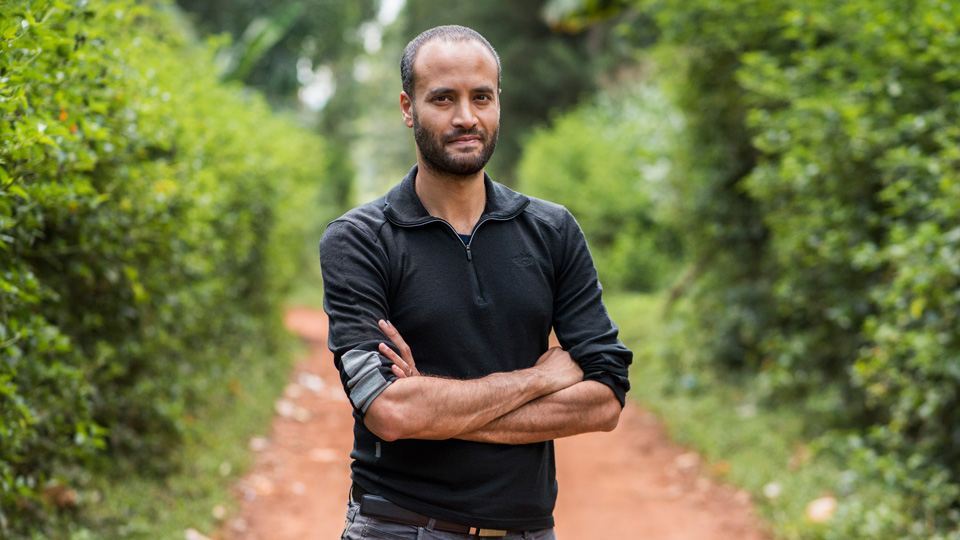
If IPEC is carried out properly it represents a massive shake-up of the system. That is much needed, in my view, and entirely possible – but only with commitment from, and effective partnership between governments, non-governmental organisations (NGOs) and the private sector to create optimal patient journeys to care.
At Peek, we’re starting to see the transformative effects IPEC can have when it succeeds. For example, in Pakistan, programmes using our technology have hugely increased the proportion of people being seen closer to home by optometrists in primary care. One of the programmes reduced the proportion of people arriving at the district hospital [with issues related to refractive error] from 41% to 1%, which frees up hospital services to see more medical cases. In Kenya, the Vision Impact Project (run jointly by CBM and the Ministry of Health using Peek technology) reached a million people in its first year and is continuing to bring life-changing eye care services into schools and communities.
What role do you see optometry having in advocating for, and living out, these aims?
We’re facing a global vision crisis and the optometry profession is central to resolving that crisis equitably and effectively. Historically, eye care has been a very low priority for funders and governments compared to other health issues, and optometry has often been neglected within eye health. Eye care is often siloed and there are too few examples of successful integration into other systems. Thanks to the efforts of organisations like the World Council of Optometry and the International Agency for Prevention of Blindness, we’re starting to see those barriers breaking down. Momentum is definitely building to a global movement for change. It can’t come too soon.
What do you feel might be helpful to support greater access to eye care?
There are a number of issues to consider here. Firstly, the issue of eye health is invisible: optometry and uncorrected refractive error has not been visible enough in global eye health. Global eye health has not been visible enough in the global health agenda. Now we are all making the case that vision is a development issue, it is the golden thread across the Sustainable Development Goals and leads to better learning, earning, road safety and wellbeing.
Secondly, the data has been invisible to health systems. It is very difficult to increase access if we can’t see who is falling out of the system and designing services and programmes based on what is needed to reach everyone.
Finally, the visual world has been invisible for too many people for too long. Demand for eye care requires people to be aware their problem is treatable and that treatment is accessible. The transformative impact of seeing what you didn’t know you couldn’t see can change the trajectory of your life. I was one of those people. A pair of glasses at the age of 12 changed the course of my life. The need for eye care is universal, access is not.
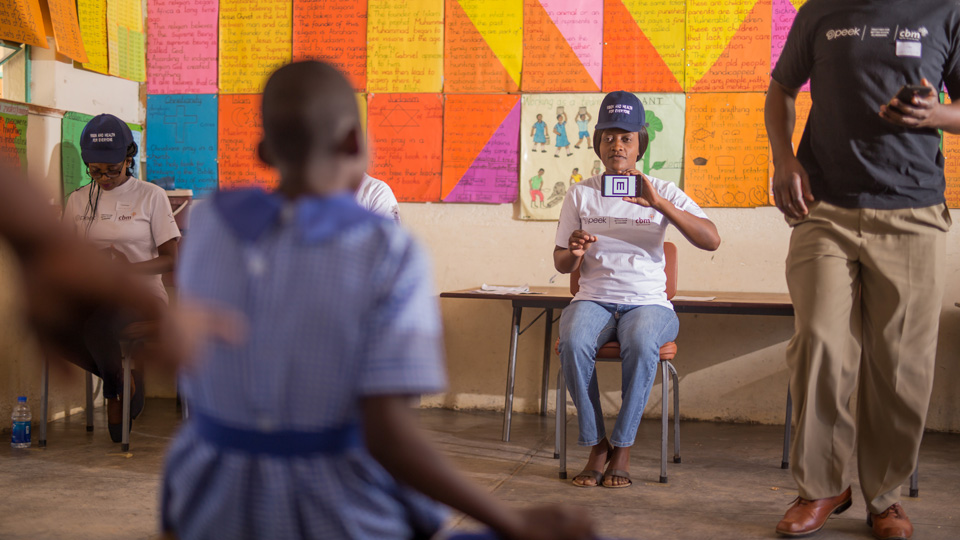
The UK’s profession continues to beat the drum, lobby, and ensure that the people who hold the purse strings understand the value of our profession’s contribution to primary care
Claire Slade, head of professional advancement and governance at Hakim Group
What does the theme of this World Optometry Week mean to you?
This year’s theme of enabling equitable access to eye care has long been at the heart of the UK optometry profession. There is so much great work in this area championed by the profession, it’s hard to call out every example. From running campaigns to ensure that all members of the public understand the importance of regular eye examinations at every stage of life, to broader initiatives led by our professional bodies to establish a whole range of eye care services closer to home, like the People with Learning Disabilities pathway, which enables better engagement and uptake from the public in accessing eye care services.
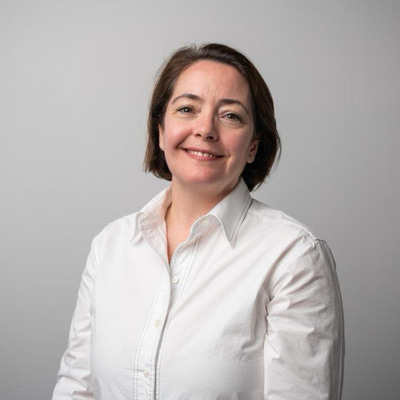
Recognition of how sight impairment, from something as simple as uncorrected refractive error to more serious sight loss due to pathology, impacts people’s mental and emotional wellbeing, their quality of life and the impact of the working population’s contribution to the economy is a big barrier. Funding and prioritisation for eye care is also a major impact. We are extremely fortunate that we have the NHS, but it also comes with ever decreasing resources.
What role do you see optometry having in advocating for, and living out, these aims?
The UK’s profession continues to beat the drum, lobby, and ensure that the people who hold the purse strings understand the value of our profession’s contribution to primary care. All of the dedicated people involved with Vision Care for Homeless People is a great example of how regular optical professionals play a big part in ensuring eye care is available to everybody in our communities.
What do you feel might be helpful to support greater access to eye care?
I’d love to see an industry-led public eye health campaign on TV and radio educating the public on the importance of their local optician and the services offered. It would be great to wake up one day in the not-too-distant future and find that the public view our profession as the first port of call for anything eye-related in the same way they do for dentists.
Partnering to support access to eye care
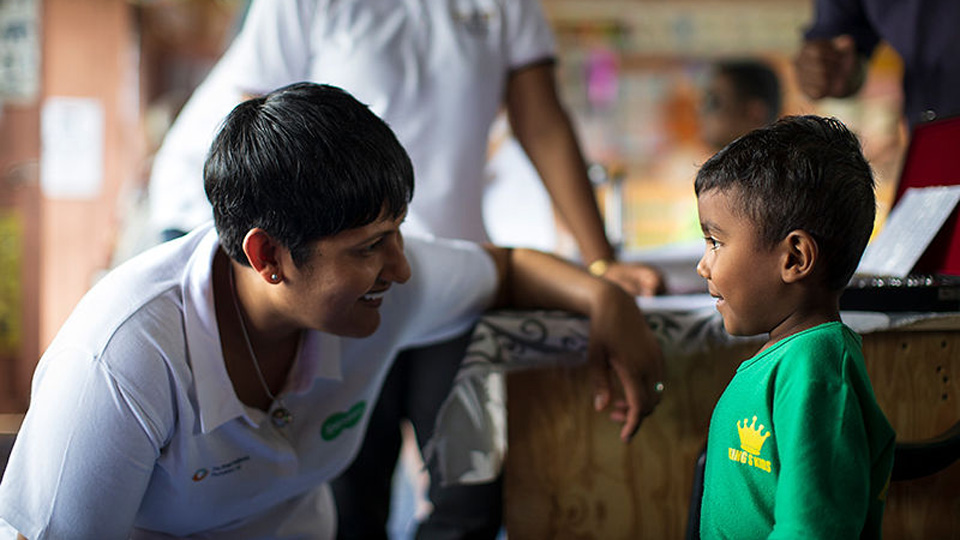
This World Optometry Week, Specsavers highlighted the work of its clinicians to improve equitable access to eye care around the world.
John Perkins, chief executive officer at Specsavers, commented: “We’re passionate about giving back to and working with our local communities, wherever in the world we operate. We support many local, national and international causes and are committed to supporting eye care and hearing care projects for disadvantaged members of society.”
"We also want to help those in our communities who might not otherwise be able to access sight and hearing care services. This includes providing broader access, increasing awareness of prevention, and early detection support,” he said.
In the UK, in addition to being a longstanding supporter of Vision Care for Homeless People, Specsavers has partnered with Crisis and the Big Issue Group to help people experiencing homelessness to access eye care.
The project has seen Specsavers practices launching out of hours and outreach clinic pilots and working with partners to highlight issues to parliamentarians.
In Ireland, Specsavers is supporting people experiencing homelessness through a partnership launched in autumn 2023 with Focus Ireland.
Across Northern Europe, Specsavers said it has supported more than 100 charities and initiatives designed to reach people who “might otherwise have been unable to access services,” through financial assistance, conducting free eye tests and donating glasses.
This has been carried out through partnerships with organisations and associations, after hours pilot projects.
Specsavers has partnered with The Hope Foundation to support a Blindness Eradication Programme in Kolkata, India, and in Australia, the optical company supports The Fred Hollows Foundation and its Indigenous Australia Program.
Advertisement


Comments (0)
You must be logged in to join the discussion. Log in